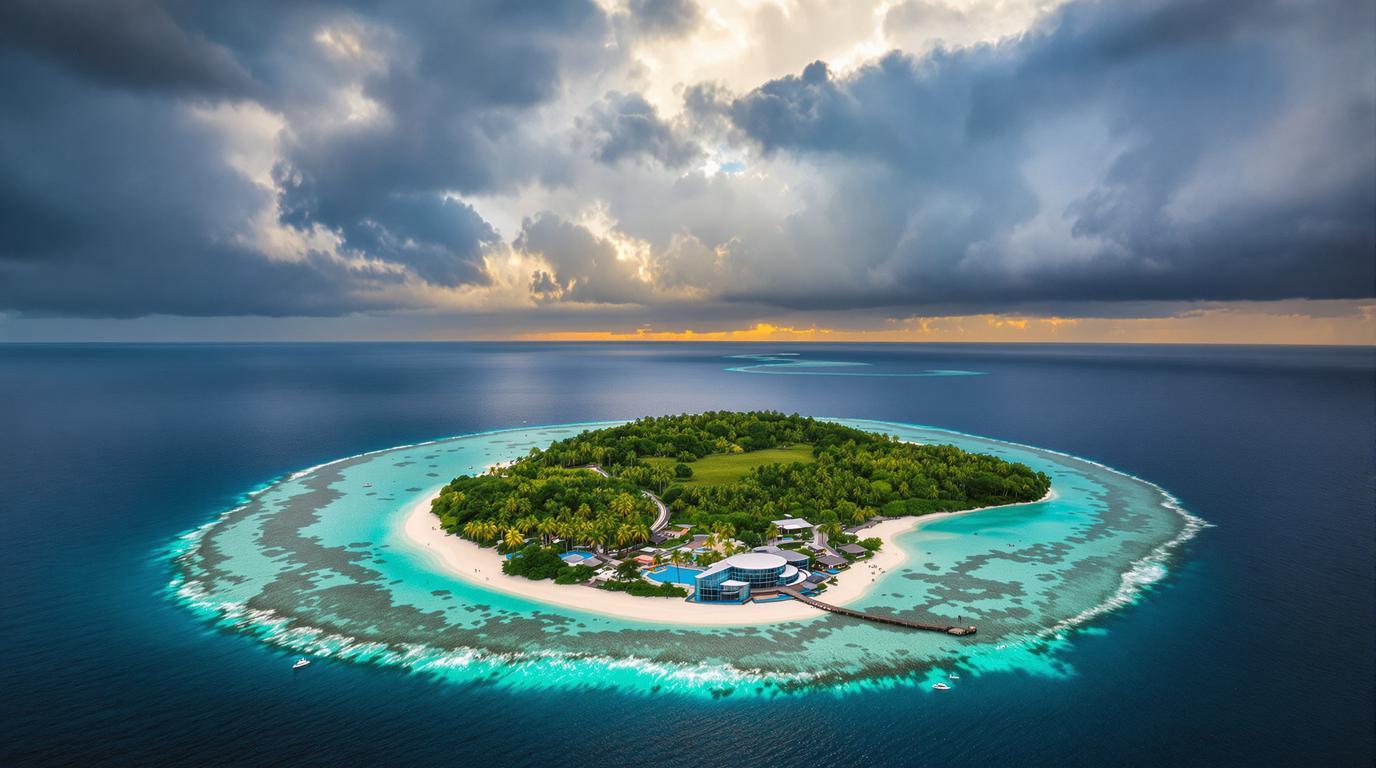This tiny island nation has devised perhaps the most luxurious survival strategy in modern history. Nauru, a remote 8-square-mile speck in the South Pacific, has launched a citizenship-by-investment program that offers something increasingly precious in today’s world: unrestricted global mobility.
A passport that unlocks 90 countries
For between $105,000 and $140,500, investors can purchase a Nauruan passport offering visa-free or visa-on-arrival access to approximately 90 countries worldwide. This includes coveted destinations like the United Kingdom, Singapore, Hong Kong, and the United Arab Emirates – making it an attractive option for globe-trotters seeking hassle-free international travel.
Unlike many citizenship programs, Nauru’s doesn’t require physical residency, making it particularly appealing to digital nomads and business travelers who value mobility over settlement.
A climate crisis survival plan
Behind this passport program lies an existential crisis. President David Adeang has positioned this initiative as crucial for Nauru’s very survival against rising sea levels that threaten to submerge portions of the island nation.
This program isn’t just about revenue – it’s about securing our future in the face of climate change that we didn’t cause but must adapt to nonetheless.
The revenue – projected to reach up to $42 million annually, or roughly 20% of the government’s total revenue – will fund climate adaptation initiatives and potentially help relocate citizens if worst-case scenarios unfold. It’s a stark reminder of how climate change forces innovative solutions from those most vulnerable.
Phoenix rising from economic collapse
Nauru’s story is one of dramatic economic boom and bust. Once boasting one of the highest per-capita incomes globally due to phosphate mining, the island faced economic devastation when these resources were depleted. The citizenship program represents a pivot toward financial reinvention.
This phoenix-like economic strategy mirrors similar programs in Caribbean nations like St. Kitts and Nevis, where passport sales have helped diversify economies traditionally dependent on tourism and agriculture.
A controversial history redeemed?
This isn’t Nauru’s first venture into passport sales. Previous programs faced international criticism for alleged exploitation by criminals. The current iteration, however, includes stricter vetting – including banning Russian applicants entirely – suggesting lessons learned from past controversies.
We’ve implemented rigorous due diligence procedures to ensure only legitimate applicants gain citizenship. Transparency is our priority.
The growing second passport industry
Nauru joins an expanding global marketplace where citizenship is increasingly commodified. According to migration experts, the global citizenship-by-investment industry now exceeds $25 billion annually, with wealthy individuals seeking multiple passports as insurance against political instability and travel restrictions.
While critics question whether citizenship should be for sale, proponents argue these programs democratize mobility traditionally restricted by accident of birth.
The paradox of passport power
There’s profound irony in a nation threatened by climate change selling passports that facilitate carbon-intensive international travel. Yet this paradox highlights the complex reality of our interconnected world.
For travelers fascinated by geopolitics, Nauru represents a fascinating intersection of environmental crisis, global mobility, and economic innovation.
The Nauruan passport program illustrates how traditional concepts of citizenship and sovereignty are evolving in our increasingly borderless world. For those with sufficient resources, this tiny island offers not just a travel document but a powerful key to global freedom – all while fighting for its own survival in a changing climate.
As nations worldwide grapple with migration and climate challenges, Nauru’s bold experiment may provide valuable insights into how small states can leverage their sovereignty in a world where mobility has become one of the ultimate luxuries. Whether purchasing passports can truly save a sinking nation remains to be seen, but the strategy itself represents a fascinating chapter in the evolving story of global citizenship.
